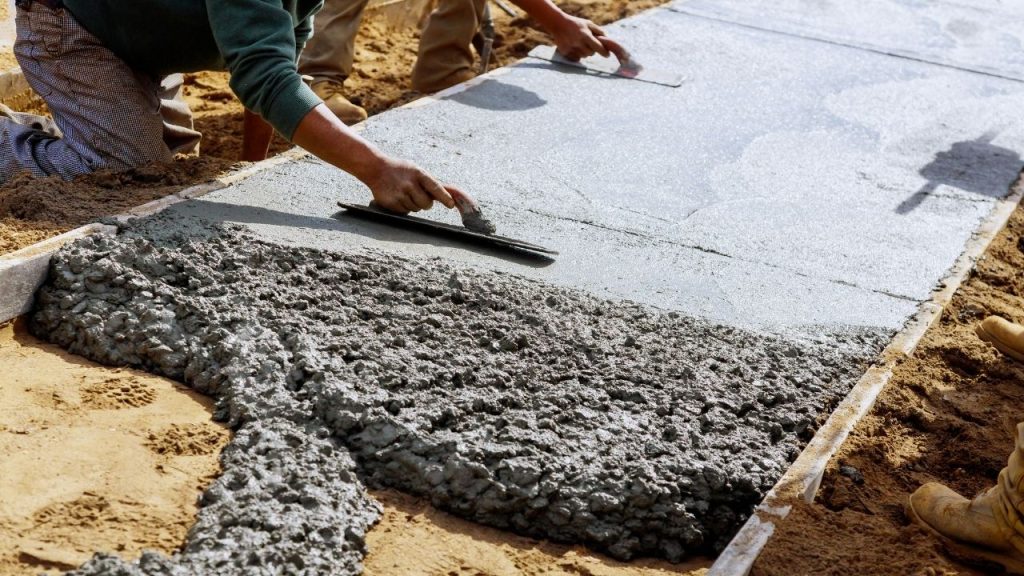Exploring Opportunities in Concrete and Cement Sector: A Guide for Startups

The building and construction market is swiftly advancing, and with it, the need for innovative products like concrete, concrete, and relevant items is rising. This short article delves into the financially rewarding opportunities in this industry, highlighting why startups need to take into consideration buying this robust and growing market.
PCC Electric Poles: A High-Demand Market
A High-Demand Market Pre stressed Concrete (PCC) electric posts stand for a significant segment in the building materials market. With their toughness and reduced upkeep, these posts are significantly liked over standard wood or metal posts. This shift presents a promising chance for startups to use a market with a regular need, driven by international urbanization and facilities advancement.
AAC Blocks: Revolutionizing Building Materials
Autoclaved Aerated Concrete (AAC) blocks are transforming the building materials industry. These lightweight, high-strength blocks offer thermal insulation, fire resistance, and energy efficiency, making them a preferred choice for modern construction. Startups venturing into AAC blocks production can expect a growing market, especially in regions with a focus on sustainable and efficient construction practices.
Polymer Modified Cementitious Tile Adhesives: Enhancing Durability
The tile adhesive market is witnessing a shift towards polymer-modified cementitious adhesives. These adhesives provide enhanced durability, flexibility, and water resistance, making them ideal for both residential and commercial applications. This niche market offers startups an opportunity to specialize in a product that caters to a specific, yet essential, segment of the construction industry.
Visit this Page for More Information: Start a Business in Construction Industry
Concrete Blocks and Ready Mix Concrete: The Backbone of Construction
Concrete blocks and ready mix concrete are the backbones of the construction industry. With the increasing demand for cost-effective and time-efficient construction methods, these products are more relevant than ever. Startups can benefit from the vast market potential and the opportunity to innovate in product delivery and sustainability practices.
Precast Concrete Compound Wall: A Growing Trend
A Growing Fad The use of precast concrete for compound walls is getting appeal because of its cost-effectiveness and speed of setup. This market provides startups with a chance to cater to a market looking for fast and reliable building and construction options, specifically in metropolitan and semi-urban areas.
Cement Roofing Tiles: Combining Aesthetics and Functionality
Incorporating Visual Appeals and Capability Cement roof floor tiles supply a visual yet functional service for contemporary structures. This segment allows startups to discover a market that values both the aesthetic allure and the durability of roofing products. With the ideal technology, there’s capacity for considerable development in this niche area.
Portland Cement: The Evergreen Product
The Evergreen Item Portland concrete continues to be a fundamental material in the building market. Regardless of its traditional origins, there’s area for innovation in terms of manufacturing performance and ecological sustainability. Start-ups entering this space can focus on these aspects to carve out an one-of-a-kind setting in a reputable market.
Asbestos Cement Corrugated Sheet: Navigating Challenges
While asbestos cement corrugated sheets have been popular for their durability, the health risks associated with asbestos have led to a decline in their use. Startups can look into alternative, safer materials that offer similar benefits, tapping into a market that’s undergoing a significant transition.
Cement from Rice Husk: An Eco-Friendly Innovation
Producing cement from rice husk is an innovative approach to creating eco-friendly construction materials. This sector not only offers a sustainable solution but also addresses waste management issues. Startups focusing on green innovations can find a receptive market in this area.
Related Business Plans: Construction & Building Materials
Innovative Use of Cement in Infrastructure: A Lucrative Avenue
Infrastructure projects around the globe are constantly seeking innovative and cost-effective materials. Cement plays a crucial role in these projects, offering durability and strength. Startups can tap into this demand by developing specialized cement mixes that cater to unique infrastructural needs, such as high-stress bridges or earthquake-resistant buildings. This specialization not only ensures a niche market share but also contributes to the advancement of infrastructure technology.
Green Cement: Pioneering Sustainable Construction
Sustainability is no longer a choice but a necessity in construction. Green cement, produced using recycled materials and less energy, is an emerging field with immense potential. By investing in the production of green cement, startups position themselves at the forefront of an eco-conscious market, appealing to a growing segment of consumers and businesses seeking sustainable construction solutions.
Fiber Cement: Durable and Versatile
Fiber cement is a composite material known for its durability, fire resistance, and versatility. It is used in a variety of applications, from roofing to siding. For startups, the production of fiber cement offers a chance to be part of a market that values high-quality, long-lasting materials. There is also an opportunity to innovate in terms of textures, colors, and forms, providing customized solutions to clients.
Self-Healing Concrete: The Future of Construction
Self-healing concrete, which uses bacteria or other agents to fill cracks, represents the cutting edge of construction material technology. This futuristic material offers a sustainable solution to concrete’s tendency to crack, reducing maintenance costs and extending the lifespan of structures. For startups, this is a chance to be part of a revolutionary development in the construction industry.
Read our Book Here: The Complete Book on Construction Materials
Customized Cement Solutions for Specialized Applications
Different construction projects have unique requirements, and there’s a growing demand for customized cement solutions. Startups can specialize in creating tailor-made cement mixes for specific applications like marine construction, chemical-resistant structures, or low-temperature environments. This approach not only meets the specific needs of clients but also sets the startup apart in a market dominated by one-size-fits-all products.
Sustainable Cement Manufacturing Processes
The manufacturing process of cement is energy-intensive and has a significant environmental impact. There is a substantial opportunity for startups to innovate in this space, developing more sustainable manufacturing processes. This could involve utilizing renewable energy sources, reducing emissions through carbon capture technologies, or optimizing the manufacturing process for minimal waste.
Collaborative Ventures in Cement and Concrete Technology
The future of the cement industry lies in collaboration — between manufacturers, tech companies, and startups. Startups can position themselves as key players in these collaborative ventures, bringing fresh ideas and new technologies to the table. This could involve partnerships for research and development, joint ventures with established companies, or collaborative projects with government agencies.
Conclusion
The chances in the concrete, cement, and cement-based products industry are substantial and differed. From technical innovations to lasting practices, start-ups have countless avenues to discover. Each of these areas not just provides business possibility but additionally contributes to the development and enhancement of this vital industry. As the world continues to develop and expand, the need for smarter, much more lasting, and reliable building and construction materials and methods will only boost. Startups entering this area have the one-of-a-kind possibility to drive significant change, whether via developing green production processes, presenting innovative innovations, or developing niche products customized to specific market demands. The crucial depend on understanding the current obstacles and future patterns of the sector, paired with a strong concentrate on innovation and sustainability. The concrete, cement, and cement-based products market is not practically producing a basic structure material; it has to do with shaping the future of construction and making an enduring impact on our globe.



